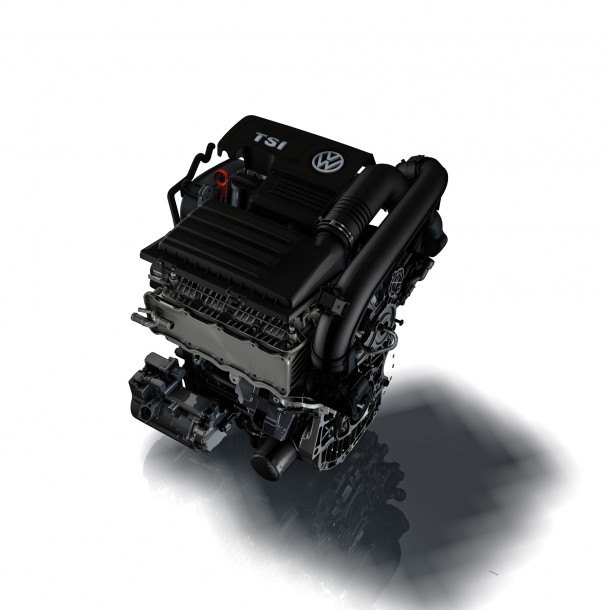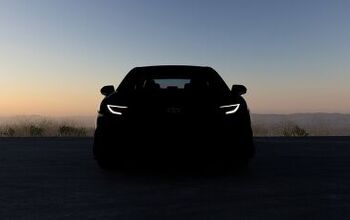Goodbye, Volkswagen 2.Slow; Oh, Hello New 1.4T

Volkswagen just took the wrapper off its 1.4-liter turbocharged four cylinder that will replace the 2-liter naturally aspirated noise machine in most of its Jettas, the automaker announced today.
The engine will produce 150 horsepower (vs. 115 hp in the outgoing model) and will produce 184 pound-feet of torque (vs. 125 in the old engine) and highway fuel economy is expected to reach 39 mpg, the automaker said.
The engine uses a small, single-scroll compressor for its turbocharger and an integrated intercooler. The engine can be mated to either a five-speed manual (!) or six-speed automatic.
The small displacement, force-fed engine is roughly related to the EA111 engine, but features a smaller bore and longer stroke. The compact design saves weight and space and Volkswagen engineers hinted that the engine could see further boosting in different applications for the engine in the future.
According to representatives from Volkswagen, the 1.4-liter turbocharged engine should be appearing in dealerships toward the end of August or early September.

More by Aaron Cole

































Comments
Join the conversation
The European 1.4t was supercharged and turbocharged and was very unreliable. Hopefully this one is at least as good as the 1.8t and 2.0t
Anyone know if they are going to be putting this in the Golf SportWagen too? It's hard enough to find a gas GSW on the lots now with only one gas engine. With two (possibly) god only knows what strange product mix they will settle on. Second thought- if they switch the Jetta SE over to this engine, I would think the 2015's with connectivity and nav would be pretty attractive since it still has the 1.8t...
Good riddance ,I hope. I can't understand how it was possible to sell such an underachieving engine as long as they did. My '86 Sierra had a 115hp 2.0i. The VW 2.slow was already regarded as a 2.slow in the mid 90's when most japanese 1.6 liter engines made as much, or more. I know VAG (at least until recently)also made a 102 hp 1.6. Maybe not awful for an economy engine from the 80's/90's, but pretty horrible by modern standards. I did drive a 1.2 Golf mk7 last year, which was actually plenty fast under Norwegian speed limits, but promptly ran completely out of breath above 60mph. It also could do 56 mpg, which isn't bad for a gas engine (my 2.0 Mondeo can barely do 50mpg Highway, or just 35 mixed)
According to VW's press release, this engine also replaces the 1.8 turbo four in the SE. This gets my attention. I recently had a Jetta SE for a week and I really, really liked that 1.8 engine. It revved beautifully. The gas mileage was very close to the EPA numbers -- mid 20s in town, 35 or so on the highway. (Driving a steady 63 mph got it right on the EPA highway button of 37.) I came out of the experience really wanting to own one. It just felt like a fun car. So if they're dumping that engine, I hope it's for a good reason besides the extra 2 mpg highway.